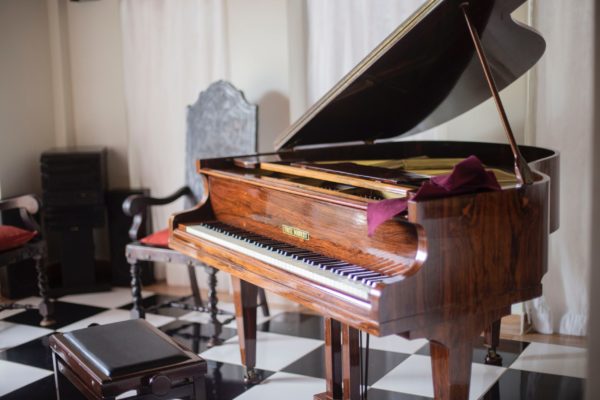My daughter started playing the piano a couple of months before her 7th birthday. We had a 100-year old upright piano that we had moved from a cousin’s house to our home. We had it tuned and soon after it would be out of tune, well before the next scheduled tuning. It got plenty of use despite the age and sound. Years later a friend of ours called and asked if we would be interested in a living room grand piano, a 70-year upgrade. We were in, we only had to pay for moving costs as the person who was downsizing wanted it to go to a good home and be played. We guaranteed both would occur. We had nothing else to do as the “seller” was taking care of the moving logistics.
The piano arrived, it was beautiful and sounded amazing. It played on for all the years my daughter was in high school. Then she went off to college, states away, and the piano stood quiet. We would hear it in its glory at holidays and school breaks when my daughter returned home, and then quiet again.
That piano was such a large part of our home both physically and figuratively. Singers would come over and practice. Guitarists, drummists, and other musicians would jam together. Jazz players and lessons were all a part of our home. This grand piano was just that, a grand part of our lives. Now the piano stands quiet, as my daughter pursues a master’s program states away. At some point, it will be a part of her home, whenever and wherever that may be.
Medicines play a similar role throughout our lives. Medicines can be life-changing, life-saving, or become a big part of our health and quality of life to pursue our work, obligations, and hopefully fun times with family and friends. Something that has brought great help and health though may not be necessary after a time and may not bring the same benefit, like our grand piano that sits quietly in our home.
In last week’s blog I provided instruction on writing a medication list and questions to ask yourself (see Are You Overmedicated?). Were there parts of this process that caused pause or uncertainty? Do you still need to treat some of the conditions that may have resolved such as acid reflux, pain, and insomnia? Have you made lifestyle changes, improved your diet, lost weight, or exercise more often that you may not need as much medication?
Begin to formulate questions to ask your doctor about the need for all your medications. An added question that is important to consider is if you have tried to self-treat any conditions such as dry eyes, constipation, insomnia, pain, headaches, muscle cramps, or any other ailment with non-prescription products. If so, you may be experiencing side effects of medication and it could be one that you have been taking for years.
Keep returning weekly for blog updates that will continue to take you through the process of deprescribing.


0 Comments